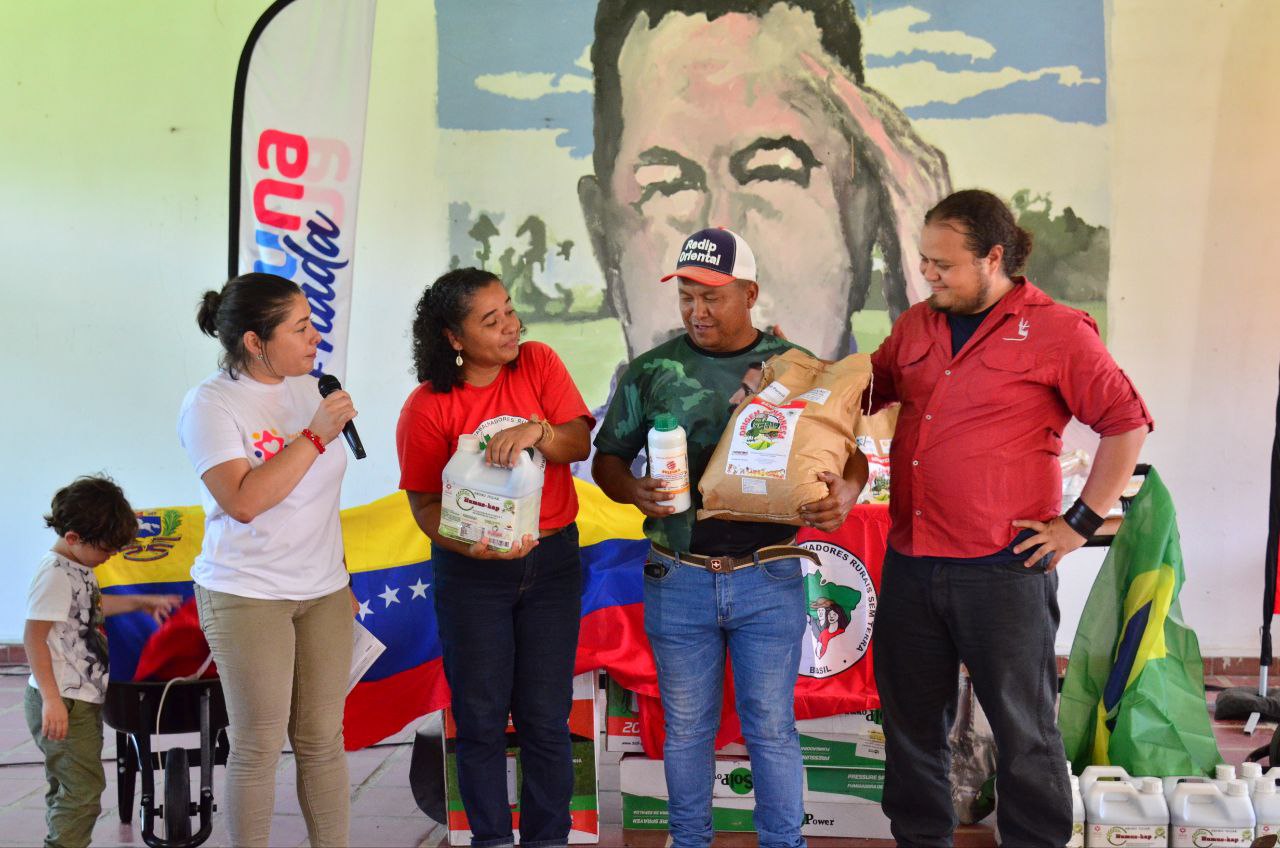Barinas, August 3, 2023 (Mincomunas Press) – This Thursday, the Integral Productive Farm Schools (GEIP), together with the Landless Rural Workers Movement of Brazil (MST), debated and built the Productive Plan 2023-2024 to continue promoting food sovereignty in the nation.
At the facilities of the Latin American Institute of Agroecology Paulo Freire (IALA) in Barinas state, after several hours of discussion and debate, the producers and peasants set as goals: the installation of laboratories in the GEIP, creation of bio-inputs, reactivation of the communal markets and cultivation houses, strengthening of sugar cane planting and bee breeding, incorporation of coffee seedlings in the IALA and multiplication of the seeds of beans and corn, among other items.
In this sense, Armando Maita, from the Doña Ana Integral Productive Farm School in Monagas state, proposed “to territorialize the production of bean and corn seeds, as well as the production of pork leg on the eve of the Christmas season.”
Víctor Pineda, from the Argelia Laya School and the Communal Economic Circuit of Coffee in Lara state, suggested creating agroecological schools and alternative spaces to diversify food production. “We must also promote ecological coffee research collectives and guarantee the organic fertilizer production.”
GEIPs Challenges
Hernan Vargas, Vice Minister of Communal Economy of the People’s Power Ministry for Communes and Social Movements, asserted that the Productive Integral Farm Schools have to be a space that invites producers, peasants, and communal farmers to change their way of producing and consuming.
“The challenge we now have is to promote the 5th Historical Objective of the Homeland Plan, based on defending life on the planet; to continue raising the flag of internationalism and the alliance to produce life; to transform the economic model and the consumption pattern; besides revitalizing the countryside and creating training plans for girls and boys, so that they can learn to prune and take care of the plants and trees in their territories”.
He explained that it is necessary to initiate a process to evaluate the advances in the reproduction of seeds and to what extent the communities consume the food produced.
Exchange of experiences
During the meeting, the delegation of Haitian students from IALA presented their experiences in the process of socio-community accompaniment, agroecological andragogy and toparquia, productive processes, the School in Movement, and the articulation with farmers and territories, among other topics.
Similarly, Oswaldo Jimenez, IALA’s village teacher, commented that on his plantation of more than 4,000 square meters, he produces essential crops such as yellow corn, white corn, corn for popcorn, pigeon pea, yucca, taro, and sesame. “Since 2002, I began to work my harvest with an agroecological approach that does not damage or destroy the planet”.
To conclude the activity, Vice-Minister Hernan Vargas and MST representative Simone Magalhaes delivered bio-inputs and seeds of agro-ecological beans to the 22 Productive Integral School Farms, in addition to donating a kit with wheelbarrows, shovels, machetes and picks to the GEIPs of the states of Monagas and Sucre.



